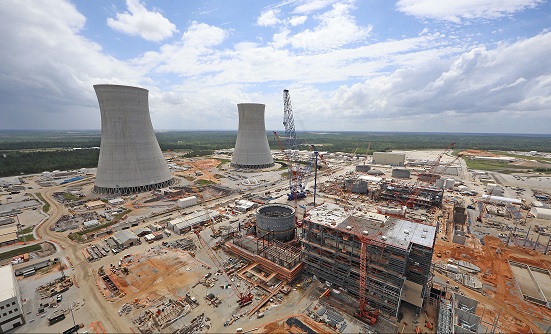Subsidy Briefs, May 31, 2017
1) Earth Track congressional testimony. Read Earth Track's testimony to the Subcommittee on Energy of the Committee on Energy and Commerce, U.S. House of Representatives: Federal Energy-Related Tax Policy and its Effects on Markets, Prices, and Consumers.
2) New work on subsidies: US public lands, European coal, Asian fossil fuels.
- A review of subsidies to fossil fuel extraction on public lands released by Oil Change International.
- Coal subsidies in ten European countries released by the Overseas Development Institute.
- IEA's review of subsidies within APEC: Tracking fossil fuel subsidies in APEC economies: toward a sustained subsidy reform
3) Exelon fails to clear latest capacity auction with two of its reactors. Exelon's Three Island Mile and Quad Cities nuclear facilities failed to clear the latest PJM auction. Trade publication Utility Dive noted that Exelon said the loss "stemmed from 'the lack of federal or Pennsylvania energy policies that value zero-emissions nuclear energy,' and, in the case of Quad Cities, not falling under Illinois ZECs program."
Reliability is the main selling point of baseload nukes facing increasing operating and maintenance costs. Thus, it is notable that while nuclear blames renewables for its heartache, non-hydro renewables comprise a tiny portion of the PJM capacity market.
A cynical view of the politics of nuclear power leads one to at least consider that perhaps Exelon is playing a bigger game. The only way for the firm to extract multi-billion dollar subsidies to keep its aging fleet open is to present as realistic a case of distress as they possibly can. Strategic losses in capacity auctions could be part of this. Indeed, the firm's management may well decide that its highest return "new" line of business is extracting subsidies from taxpayers to prop up their old plants. Here's Crain's, which has long tracked the political strategy of Exelon:
Fresh from winning subsidies in New York and Illinois, Exelon wants ratepayers in other states to pony up more to keep nuclear plants open... In an email, Exelon says only that it "continually evaluates strategic opportunities to add value for our shareholders and customers." Speaking generally of its desire to subsidize nuclear power beyond Illinois and New York, Exelon says, "Right now, active discussions on the economic and environmental advantages of nuclear power are occurring in Connecticut, Ohio, New Jersey and Pennsylvania."
And their strategy seems to be working. According to Crain's: "Exelon's stock has risen 36 percent since the Dec. 1 agreement in Illinois, well above the 20 percent increase for the Standard & Poor's 500 Utilities Index." UPENN's Kleinman Center for Energy Policy noted in a recent blog post that it is quite difficult to ensure the subsidies flowing to old nuclear reactors (which are often part of a complicated corporate network) are actually needed rather than simply juicing corporate returns.
4) Sounds of silence: G7 and fossil fuel subsidy reform. The G7's 2016 pledge to end harmful subsidies to fossil fuels by 2025 was not re-affirmed in their most recent meeting in Italy. While it was agreed to in April, the issue was not included in the formal ministerial communique in May, an omission bleakly noted by fuel subsidy research NGO, Oil Change International. These things aren't particularly binding, so the inability even to make clear statements of direction is troubling.
5) The persistent areas of overlap between civilian and military nukes. A sobering review of Japan's plutonium stockpile, its civilian origin, and the weapons proliferation risks going forward.
6) Westinghouse bankruptcy: about that $8.3 billion they owe Uncle Sam... Turns out the last sliver of the "nuclear renaissance" in the US is at risk due to poor management, fiscal distress, and the bankruptcy of one of the key vendors, Westinghouse. Gee, if only somebody could have seen something like this coming. In one of the finest moments of pretend finance in recent years, DOE flagged the risk of these massive loans (roughly sixteen Solyndra's) at zero.
The bankruptcy affects nuclear projects in both SC and GA, though only the GA project (Plant Vogtle) is receiving federal subsidized loans. The big question is how much of the DOE loans will end up in the lap of taxpayers. As of now, Vogtle hobbles on, with Southern Company -- the largest investor in the project -- taking over the lead from Westinghouse. Whether or not the Vogtle reactors are completed, there are billions in costs to be covered by some combination of customers, taxpayers, and utilities. Here's the Atlanta Journal-Constitution's summary:
The Plant Vogtle project was backed by $8.3 billion in loan guarantees from the U.S. Department of Energy – during the Obama administration...[T]he Congressional Research Service noted that those loan guarantees came with this price: “If the Vogtle project is terminated, the borrowers must repay the entire outstanding loan amount in five years.”
But the CRS also said that the secretary of energy has the power “to modify the loan agreement terms and take other steps upon a default.”
This battle will not be resolved soon. Good thing Southern Company CEO Thomas Fanning sold most of his shares in the company back on 2014.
Update, June 3rd: a key deadline in the continued financing of Vogtle has been missed, and analysts predict litigation.


